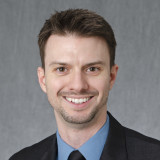
I’m standing in an empty convention center bathroom, staring down at the rows of tiny square tiles, wondering if I’ll see my lunch again.
Nerves.
In 30 minutes I will stand in front of a room full of people and deliver a lecture that might represent the biggest risk of my career. They say people fear public speaking more than death itself. But that’s not why I’m nervous.
How can you be scared of anything, someone later asked me, don’t you deal with dying people every day?
It’s true. This kind of on-the-spot stress is the currency of my trade. But it isn’t the stage or the crowd—or the fact that this is the premier conference for my entire profession — that has my stomach tied in knots. It’s the topic itself.
Curing the Toxic Medical Culture.
Taken the wrong way, the title alone can sound like an accusation leveled at our entire industry: my employers, my mentors, my friends. And me. The challenge is to present this issue — one that is so personal and yet so universal — not as a declaration of war, but a call to unity. I’m not here to burn the house down to its foundation. I just want to fix the cracks.
Twenty minutes until showtime, the phone in my pocket buzzes with a new message:
“Don’t worry. Someone is going to hear this talk who needs it. That’s the person you should focus on.”
Five years ago I was that person.
Fresh out of school and full of enthusiasm, I barreled into medicine like a Labrador puppy on a hardwood floor. I expected clinical challenges; I expected to grapple with the essence of mortality. I expected a tough career. Heck, I wanted it.
But I didn’t expect this other thing. I didn’t expect to — more often than I care to admit — encounter people who didn’t share values I assumed were inherent in healthcare: kindness, respect, cooperation. I was blindsided by toxicity.
You know it well. It’s not just a hurled scalpel or a screaming fit. It’s the subtle jabs, the tiny digs that never cease. It’s the condescension and the passive aggressive emails and the career sabotage. It’s death by a thousand eye-rolls.
Not everyone does it; in fact, very few do. But this tiny group of abusive people seemed to rule the culture around me. And even though I couldn’t prove it yet, I knew the consequences were real.
At first, I almost lost hope. If a system as large and complex as healthcare — a system full of brilliant people — deemed this behavior acceptable, who was I to question it? If toxic individuals were protected and promoted, who was I to voice my dissent? Maybe, I thought, I should just keep my head down, ignore the symptoms of a sick culture until I was finally numb to them.
But then messages started to arrive.
Social media, texts, emails, and phone calls. I don’t know how, but people from around the country and the world started to find me. They, too, had entered healthcare with a sense of duty and found their beneficence met with a hard reality. And they were not content to ignore it.
So, like any respectable nerd with an unsolved problem, I researched. And I found a small but dedicated group of investigators who were asking the same questions. Their observations and data pulled back a curtain from my eyes. They had found the science behind the very experiences I was living.
And I decided to bring it out of the shadows.
Fifteen minutes before my presentation, I look at myself in the mirror of that convention center bathroom. The nausea is gone. Someone just like me is sitting in the lecture hall upstairs. They need to know they aren’t alone, that what they experience is real. They need to know that if the culture is really as sick as they think, there might still be a cure.
By the time I arrive at the lecture hall, audience members are already filing into overflow rooms. The clock strikes the top of the hour and I step to the podium at the center of the stage. The doors close; the lights dim. I take one last deep breath and begin.
Now, I could tell you the content of the lecture. I could tell you 98% of healthcare workers experience toxic behavior at least once a year. I could tell you 30% of us experience it weekly and 10% of us are subjected to it every single day. I could tell you how it leads to burnout, to excessive use of sedatives, to anxiety and depression. I could tell you how a toxic culture robs institutions of money through wasted time and missed work, through lost employee engagement, through high turnover. I could tell you how toxic culture disrupts patient care, how it leads to less communication and more mistakes, how it makes procedural skills worse. I could tell you how it correlates with mortality.
And I could tell you how we might fix it.
But this presentation doesn’t work as a cold slab of text. It’s a message best delivered when the audience can look into my eyes, hear the inflection of every word, feel a weight lifting off their shoulders. They need to know that even though I’m standing on a stage, I’m really sitting among them. They need to know this isn’t a passing curiosity, that it means something in my life. That it left a mark.
People don’t need a savior in shining armor. They need a speaker with scars.
The lecture ends and I wonder if I reached anyone, even one person, who needed to hear it. I step down from the podium and wait. A woman steps toward me out of the dispersing crowd and I offer my hand. She squeezes it hard. Another person follows and another and another.
For the next two days, I meet a steady stream of strangers. They tell me they had waited to hear someone — anyone — finally talk about this thing that impacts their lives. Stories that once felt unrelatable are now our common language. A cause that once felt hopeless now has us unified.
A week ago, my plan was to do this just once. After all, constant exploration of a tough reality can be exhausting. But the conversations and messages that continue to find me are, in their own way, energizing. So even though I never imagined myself carrying this particular banner, I will keep going. Because somewhere in a darkened lecture hall or auditorium, someone is going to hear this.
Someone who needs it.
Harrison Reed is a Critical Care physician assistant based Baltimore, MD. He is the associate editor of the Journal of the American Academy of PAs, and a blogger reporting on the frontlines of medicine for NEJM Journal Watch.







